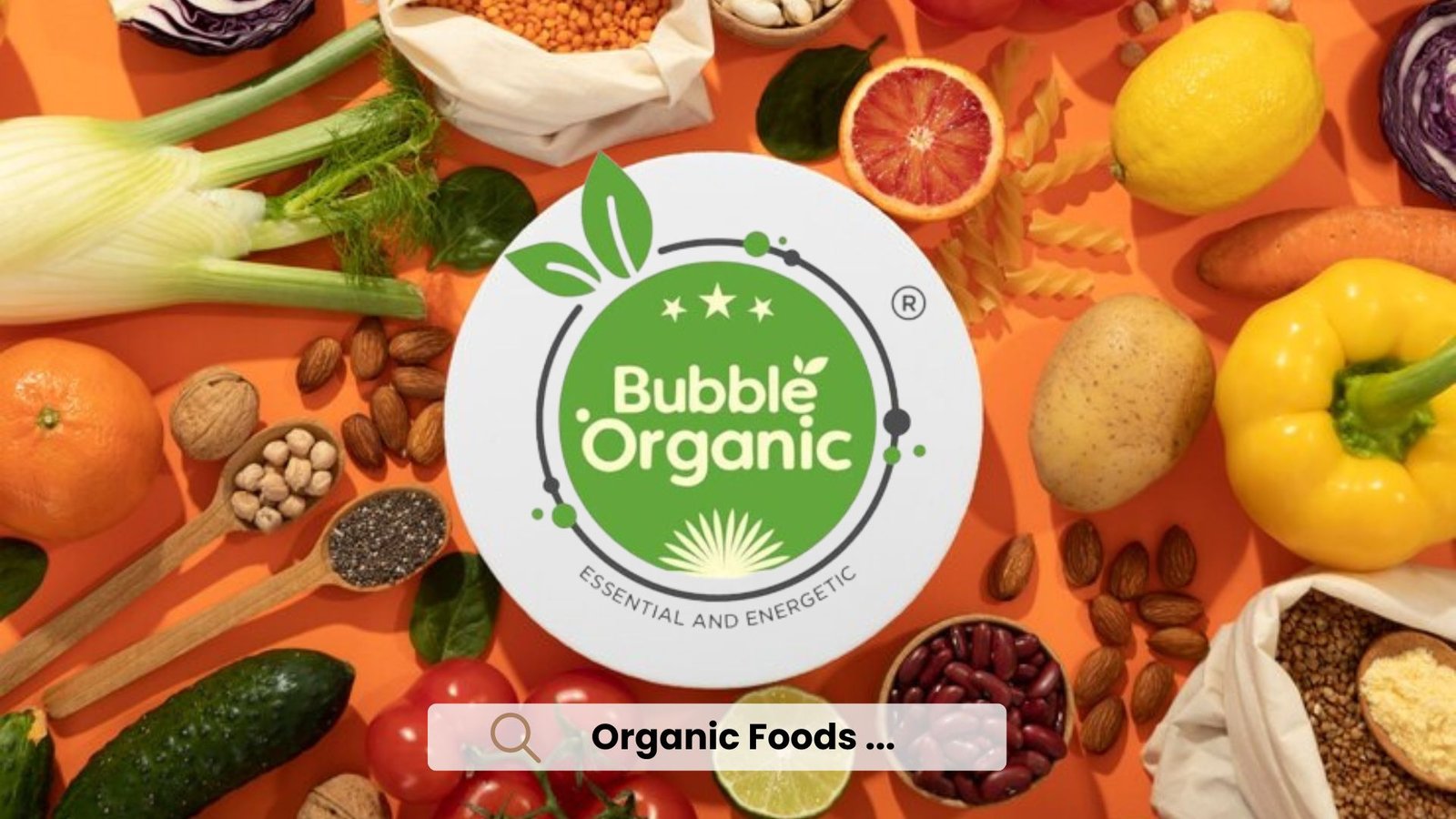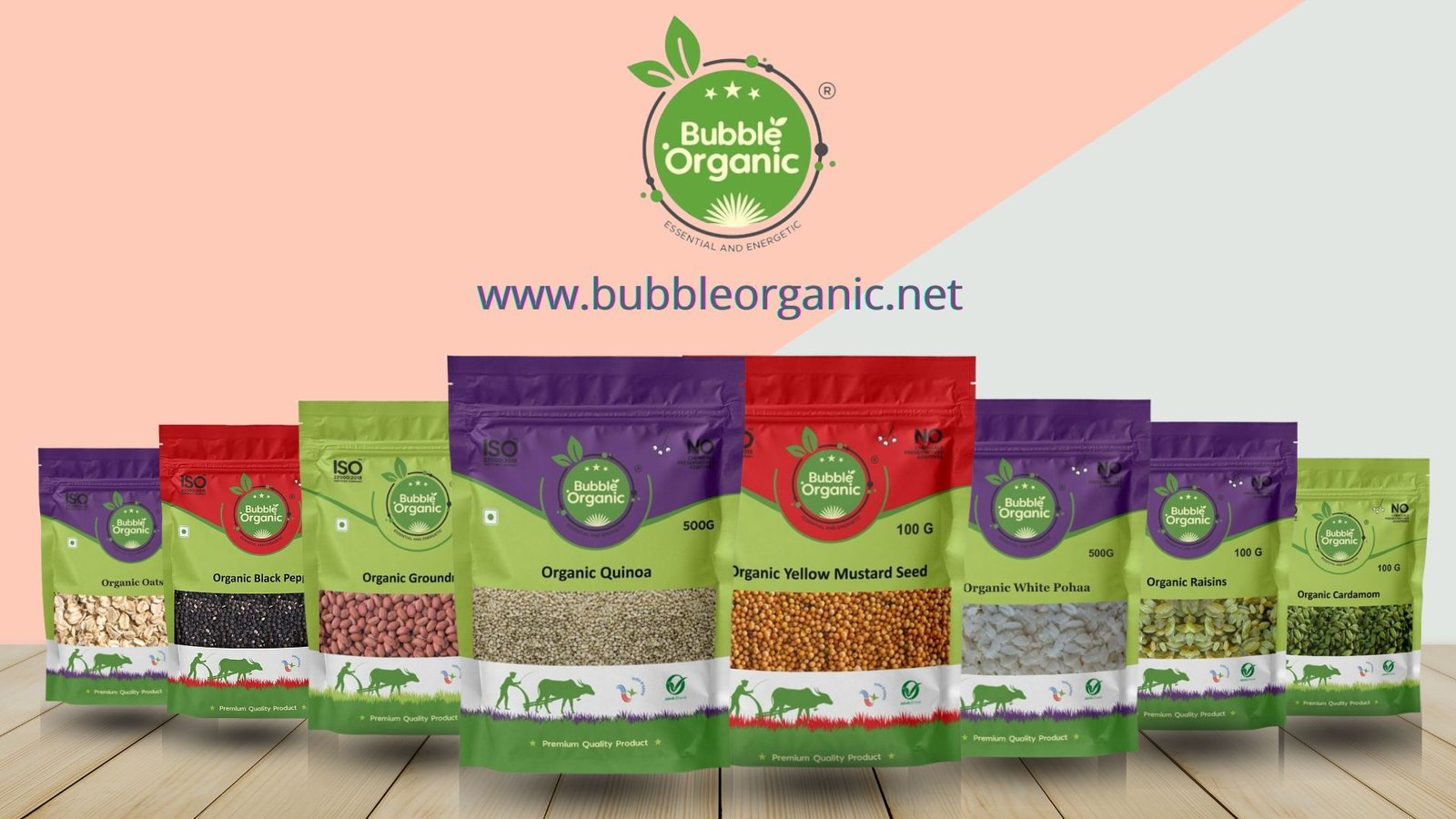
The Organic Journey : Hale and Healthy of Organic Food Platter
HALE AND HEALTHY OF ORGANIC FOOD PLATTER

Organic farming is an environmentally friendly way of farming that focuses on soil strength, biodiversity, and environmental protection. It started in the early 20th century and has since developed with a focus on ecological balance and resource preservation. These foods promote good health and eco-friendly because they have reduced sum of unsafe metals and pollutants compared to conventional foods. Organic farming incorporates key practices such as crop rotation, composting, and biological pest control, all of which contribute to improving soil fertility, preventing erosion, and decreasing the need for synthetic inputs .Various cram emphasize the positive impact of organic farming on the environment, including reduced greenhouse gas emissions, better water quality, and the preservation of natural habitats. People are generally believe that organic foods are healthier than regular or conventional foods because they think that organics offer health benefits, are free from pesticides, and more nutritious. Modern precision farming methods, such as the use of drones and satellite imagery, allow organic farmers to monitor their crops more effectively and make informed decisions about irrigation, fertilization, and pest control. This not only helps to reduce the environmental impact of farming but also ensures that organic principles are upheld. Green techs are the recent trend in bio- farming.
As the global population continued to grow, the demand for food also increased. This led to the development of the "green revolution," where farmers began to rely on technology and synthetic inputs to boost food production. While this revolution, succeed in increasing food yields, it also brought about negative consequences such as soil degradation, water pollution, and loss of biodiversity. Additionally, the use of chemical pesticides and fertilizers has been linked to various health issues in both humans and animals. As a result, there has been a renewed interest in organic and sustainable farming practices as a way to mitigate these environmental and health concerns. This shift towards organic farming aims to strike a balance between meeting the food demands of a growing population while also preserving the natural environment and promoting human health.

They also prefer products that are sustainably sourced and produced, as well as those that are packaged in eco-friendly materials. This shift in consumer behavior has led to a rise in demand for environmentally-friendly products and has prompted many companies to adopt more sustainable practices in order to meet this demand. As a result, businesses are increasingly incorporating environmental considerations into their decision-making processes and are investing in green technologies and initiatives to reduce their carbon footprint. Overall, the growing focus on the environment among consumers is driving positive change and encouraging businesses to prioritize sustainability in their operations. Furthermore, the rise of social media and online platforms has allowed organic food producers to reach a wider audience and connect with consumers who are looking for healthier and more sustainable food options. This has led to the growth of online organic food marketplaces and subscription services, making it easier for consumers to access organic products.
FARMING ROUTINE ON THE ESCALATION OF ORGANIC FOOD:
Organic farmers employ methods like mulching, hand weeding, and mechanical cultivation to handle weeds without the use of herbicides. In addition, organic livestock farming often prioritizes the use of local and regional markets, which can support the local economy and reduce the carbon emissions associated with long-distance transportation of animal products. Organic farming practices have been shown to have a significantly lower carbon footprint compared to conventional farming methods. This is due to the fact that organic farming relies on natural processes and inputs, such as compost and cover crops, rather than synthetic fertilizers and pesticides that contribute to greenhouse gas emissions. Additionally, organic farming helps to improve soil health and fertility, which in turn helps to sequester carbon in the soil. Even with obstacles such as increased production expenses and certification challenges, the desire for organic food is steadily increasing worldwide. This growth is fueled by consumers' inclination towards healthier, environmentally friendly food options. The key to the future of organic farming is expanding production, improving policy backing, and educating consumers on the advantages of organic food systems.
Organic food has evolved from farming techniques focused on sustainability and ecological harmony. Pioneers such as Sir Albert Howard and Lady Eve Balfour promoted approaches that improve soil quality and biodiversity, setting the stage for contemporary organic agriculture. Essential components of organic farming encompass; Organic farmers prioritize soil fertility through practices such as crop rotation, cover cropping, and the addition of compost and organic matter. These methods support healthy soil ecosystems and reduce reliance on synthetic fertilizers. By implementing integrated pest management strategies, farmers can effectively manage pests and diseases in a sustainable and environmentally friendly manner. This approach involves monitoring pest populations, using cultural practices such as crop rotation and planting resistant varieties, and only resorting to chemical pesticides as a last resort. This not only reduces the negative impact on the environment and human health, but also helps to maintain the balance of ecosystems and promote biodiversity.




